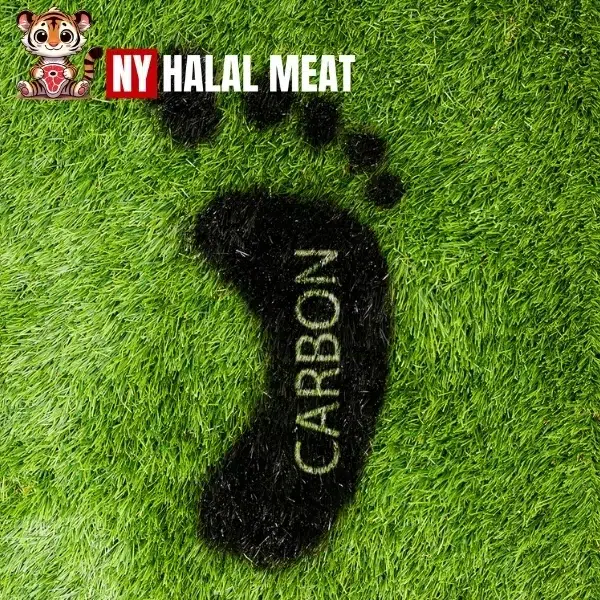Halal Meat Carbon Footprint: How NYC Butchers Are Tackling Climate Change
As climate change becomes a growing concern, NYC’s halal butchers are taking proactive steps to reduce their carbon footprint. While halal practices already emphasize ethical treatment and religious standards, there is now an added focus on sustainability. In this guide, we’ll compare the emissions of locally sourced versus imported halal meat and explore zero-waste butcher initiatives that are helping reduce the environmental impact of the halal meat industry.
What Is a Carbon Footprint and Why Does It Matter?
A carbon footprint measures the total greenhouse gas emissions caused directly or indirectly by an activity. In the meat industry, emissions come from:
- Animal feed production
- Transportation of livestock and meat
- Processing and refrigeration
- Food waste disposal
Reducing the carbon footprint of halal meat production can help combat climate change while supporting ethical food practices. Learn more about sustainable halal meat at NY Halal Meat.
Local vs. Imported Halal Meat: Which Is More Sustainable?
1. Local Halal Meat
Locally sourced halal meat offers several environmental benefits:
- Reduced transportation emissions: Shorter supply chains mean fewer emissions.
- Support for sustainable farming: Local farms often use eco-friendly practices.
- Fresher products: Faster delivery means fewer preservatives are required.
Discover the advantages of local halal meat at NY Halal Meat.
2. Imported Halal Meat
Imported meat, though often cheaper, comes with environmental drawbacks:
- Higher transportation emissions: Long-distance shipping increases carbon output.
- Unclear sustainability standards: Imported products may not meet local eco-friendly requirements.
Imported halal meat can have a carbon footprint up to 70% higher than local alternatives. For better sustainability practices, explore local options at NY Halal Meat.
How NYC Butchers Are Reducing the Carbon Footprint of Halal Meat
1. Sourcing Locally
Many NYC halal butchers are partnering with local farms to reduce emissions from transportation. Examples include:
- Madani Halal (Brooklyn): Works with nearby farms that practice sustainable agriculture.
- Patel Brothers (Queens): Partners with regional suppliers to ensure ethical sourcing.
Find more local halal meat suppliers at NY Halal Meat.
2. Zero-Waste Butcher Initiatives
NYC butchers are adopting zero-waste practices by:
- Using all parts of the animal for broths, compost, or pet food
- Switching to biodegradable packaging materials
- Composting scraps instead of sending them to landfills
Learn about zero-waste halal meat practices at NY Halal Meat.
3. Energy-Efficient Operations
Energy-saving measures help reduce the carbon footprint of halal meat processing:
- Using LED lighting in butcher shops
- Investing in energy-efficient refrigeration systems
- Incorporating renewable energy sources like solar power
The Role of Consumers in Reducing the Halal Meat Carbon Footprint
Consumers play a vital role in reducing emissions by:
- Supporting local halal meat suppliers
- Choosing butchers that follow zero-waste practices
- Reducing meat consumption and minimizing food waste
For more eco-friendly halal meat buying tips, visit NY Halal Meat.
Local vs. Imported Halal Meat: A Quick Comparison
| Factor | Local Halal Meat | Imported Halal Meat |
|---|---|---|
| Carbon Footprint | Low (up to 30% less) | High (up to 70% more) |
| Price | Higher | Lower |
| Freshness | Fresher | Requires preservatives |
| Environmental Impact | Supports sustainable farming | Higher due to transportation |
Final Thoughts: Building a Sustainable Future for Halal Meat in NYC

Reducing the carbon footprint of halal meat requires both butchers and consumers to make environmentally responsible choices. NYC’s halal butchers are leading the way with local sourcing, zero-waste practices, and energy-efficient operations. Consumers can support these efforts by buying local, reducing meat consumption, and minimizing food waste.
Stay informed about the latest sustainable halal meat initiatives by visiting NY Halal Meat.


